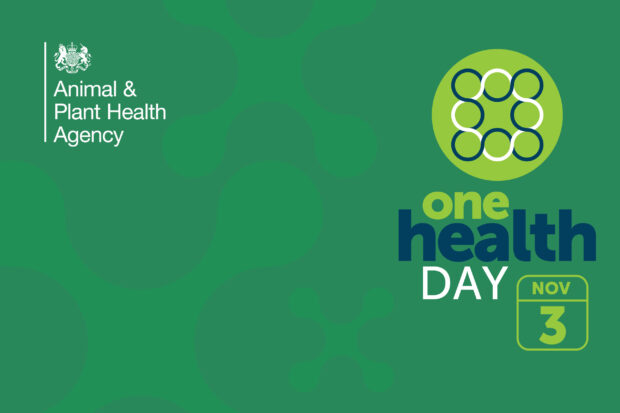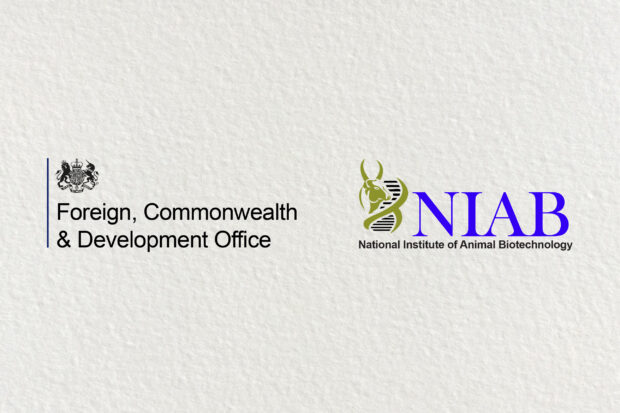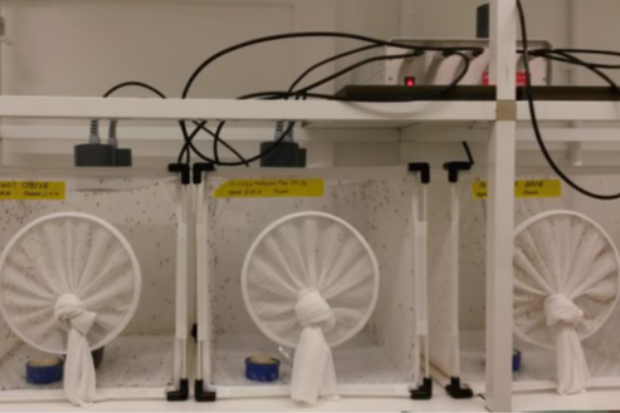
What is One Health?
One Health is a multi-disciplinary approach to address threats to public and animal health and the ecosystems that interlink them. This is directly aligned to the APHA mission:
“To protect animal and plant health for the benefit of people, the economy and the environment.”
Increasingly, governments across the globe are realising the benefits of the One Health concept and many researchers use it as for comprehensive disease preparedness and interventions.
APHA works on a wide range of projects that impact on the environment and animal and plant health in the UK and assist many other countries to tackle One Health issues. This blog outlines some of the work undertaken between India and the UK, a partnership that delivers mutual benefits. The UK’s India 2030 vision is for, “revitalised and dynamic connections between our people; re-energised trade, investment and technological collaboration, that improves the lives and livelihoods of our citizens”.
In 2023, APHA embarked on a scientific programme with the Indian National Institute Animal Biotechnology (NIAB), funded by the Foreign, Commonwealth and Development Office (FCDO), which set out to increase capability in laboratory technologies and an improved understanding of zoonoses with a focus on vector-borne diseases and brucellosis.
A zoonosis is an infectious disease caused by an organism that has jumped from an animal to humans. Zoonotic pathogens may be bacterial, viral or parasitic, or may involve other agents that spread to humans through direct contact or through food, water or the environment.

Scientists from both institutes shared information on the advances in scientific technologies. The programme enhanced professional relationships between the scientists and enabled important dialogue for bilateral collaboration.
You might be asking yourself…why?
Scientists from NIAB and APHA met to share information and to plan a way forward for joint working. Presentations were delivered on the latest scientific advances in the areas of joint interest, together with laboratory visits, paving the way forward for future collaborations, particularly with respect to emerging infectious diseases that may pose a future threat to both countries. Two topics that were covered in the discussions were brucellosis and vector borne diseases.
Brucellosis
Brucellosis is a zoonotic bacterial disease transmitted to humans by either drinking milk or eating dairy products made from milk from infected animals. In animals, particularly ruminants and swine, infection results in abortion and substantial productivity losses. In humans, brucellosis results in fever and, if untreated, can lead to significant chronic health conditions although mortality rates are low. The UK is free from brucellosis in our food chain.
Why should APHA be concerned?
The UK has eradicated brucellosis and the free status is of high value to the livestock industry as it facilitates trade and the absence of this pathogen protects human health. This status is continually under threat from importation of the disease and the activities of APHA’s brucellosis team is critical in protecting the UK against this. Beyond the UK, brucellosis is one of the most significant and common bacterial zoonosis worldwide and is often listed as a high priority endemic disease. With its skills, experience and WOAH mandate, the APHAs Brucellosis Reference Laboratory assists other countries, when requested, with advice and confirmatory testing of ‘suspect’ samples.
Vector-borne diseases (VBDs)
A vector-borne disease is a disease that results from an infection transmitted to humans and other animals by blood-feeding arthropods, including mosquitoes, ticks and fleas, amongst others. Examples of vector-borne diseases include West Nile virus and malaria.
Our discussions on this topic included, arthropod borne diseases, methods of morphological and molecular identification, sample processing, surveillance, the use of insectaries and disease control methods.

Why is working together on VBDs so important?
India is approximately 13 times larger than the UK and with great size, comes areas of diverse environments. Understanding the regions of differing climates, vegetation, vector type and vector densities could provide both India and the UK with important insights into the effects of global warming on the incursion of new pathogens transmitted by insect vectors.
The One Health concept facilitates all disciplines to work efficiently together to model what may happen as future weather systems change. It is widely acknowledged that seasons are changing in the UK with cooler summers and warmer winter months. Climate change in the UK will make hot spells more frequent and severe. By 2070, the chance of exceeding 30°C for two days or more increases. In fact, across the south of the UK, it becomes sixteen times more frequent than it is today. That will have a large impact on vector abundance and distribution.
Climate change also affects the availability of ground and surface water, making the environment more suitable for insects to multiply. Different insect species will bring with them disease-causing organisms, some of which the UK has not previously encountered. The partnership between the UK and India will enable the two countries to work together, to share knowledge, skills and experience and so be better prepared for future disease incursions.
APHA has a unique offer through our ‘Sustainable Future Strategy’ (PROTECT pillar), by “proactively identifying and mitigating threats to the nation’s animal health, plant health, human health, food security and the environment, including those increased by climate change".
“The APHA is a key player in the global One Health Approach that is critical to protecting against many existing and emerging infectious diseases. International partnerships are essential to better understanding and protection against these diseases. We are therefore delighted to have established strong relationships with such a significant partner in India and we look forward to future collaborations with them.”
Dr John McGiven
Lead Scientist for the Department for International Development, Innovation and Business

Recent Comments